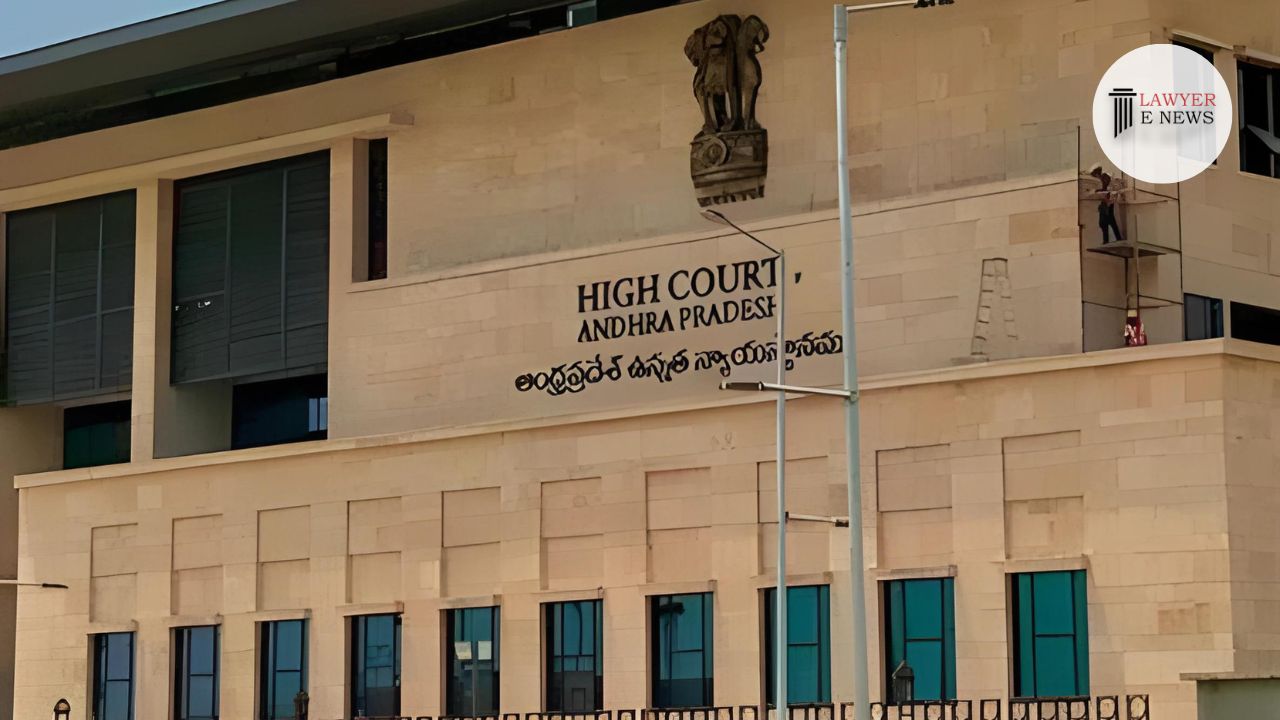-
by Admin
15 February 2026 5:35 AM



On September 24, 2024, the Andhra Pradesh High Court, presided over by Justice Venuthurumalli Gopala Krishna Rao, delivered a significant judgment in P.V. Raghavulu v. Paramata Sripallavi (First Appeal No. 194 of 2007). The case revolved around a father's legal obligation to provide maintenance and marriage expenses for his unmarried daughter under Section 20 of the Hindu Adoptions and Maintenance Act, 1956. The Court partially allowed the father's appeal, reducing the monthly maintenance from ₹2,000 to ₹1,000 but upheld the award of ₹5,00,000 towards marriage expenses, marking an important clarification on maintenance obligations for adult, unmarried daughters.
The respondent, Paramata Sripallavi, filed a suit seeking maintenance and marriage expenses from her father, P.V. Raghavulu, under Section 20 of the Hindu Adoptions and Maintenance Act, 1956. Sripallavi, a B.Sc. final-year student, claimed that her father had neglected her after separating from her mother. The defendant disputed the claim, arguing that the respondent was not his biological daughter, and that her mother had been his concubine, not his wife. The trial court ruled in favor of the plaintiff, awarding ₹2,000 per month for maintenance and ₹5,00,000 for her marriage expenses, prompting Raghavulu to file this appeal.
The key legal issues in the appeal revolved around:
Whether the appellant was the biological father of the respondent, and thus legally obligated to maintain her.
Whether the maintenance awarded by the trial court was excessive in light of the respondent's employment and the appellant's advanced age.
The appellant denied paternity, claiming that Sripallavi’s mother was a concubine. However, the Court relied on evidence, including the respondent’s SSC certificate and her appointment order, both of which listed P.V. Raghavulu as her father. The Court stated:
"The material on record shows that in Ex.A-1 Secondary School Certificate (SSC) of the plaintiff, the name of the plaintiff’s father is mentioned as 'Sri P.V. Raghavulu.'"
The Court further emphasized that, under Section 20 of the Hindu Adoptions and Maintenance Act, a Hindu is legally bound to maintain both legitimate and illegitimate children, especially if the child is unmarried and unable to support herself.
The High Court dismissed the appellant's argument that he was not the respondent’s father. The Court noted that the evidence conclusively established the appellant's paternity. Citing Section 20 of the Hindu Adoptions and Maintenance Act, the Court reiterated that a father is obligated to maintain his unmarried daughter as long as she is unable to support herself.
During the appeal, it came to light that Sripallavi had secured a government job as a Deputy Tahsildar in 2009, and was now financially independent. Taking this into consideration, along with the appellant's advanced age of 91 years and his declining health, the Court reduced the maintenance from ₹2,000 to ₹1,000 per month, applicable until September 2009, when the respondent secured employment. The Court also accounted for the ₹41,000 already paid by the appellant towards arrears of maintenance.
The Court upheld the trial court’s award of ₹5,00,000 towards the respondent’s marriage expenses. The appellant, an ex-MLA and ex-Minister, was found to have sufficient financial resources to fulfill this obligation, notwithstanding his age and health issues.
The Andhra Pradesh High Court's judgment in P.V. Raghavulu v. Paramata Sripallavi partially allowed the appeal by reducing the maintenance from ₹2,000 to ₹1,000 per month, payable until September 2009. However, the Court upheld the trial court's decision to award ₹5,00,000 for the respondent’s marriage expenses, reaffirming the legal obligation of a father to support his unmarried daughter even after she attains majority, as long as she remains financially dependent.
Date of Decision :September 24, 2024
P.V. Raghavulu v. Paramata Sripallavi
